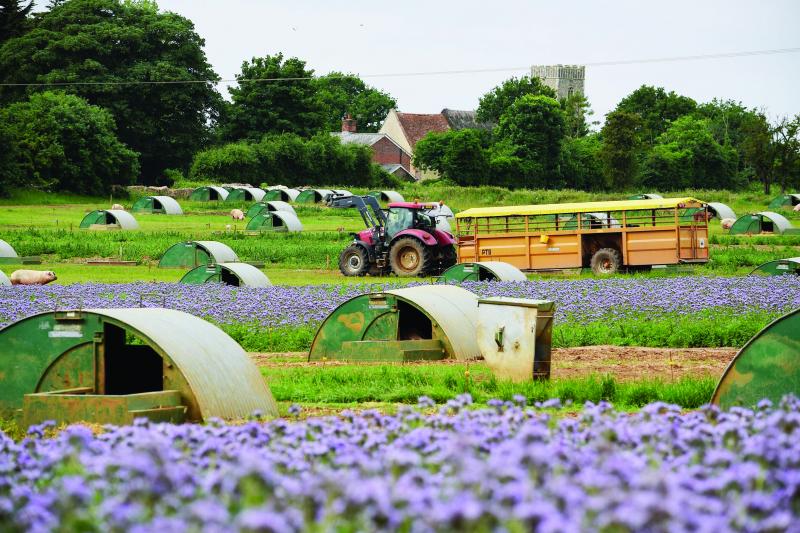The National Pig Association (NPA) has called for pig production to have a more formal and recognised role in the new Environmental Land Management (ELM) scheme.
In the NPA’s submission to Defra’s consultation on the new scheme, which is due to be fully rolled out in 2024, following various pilots, Ed Barker points out that pig farms have, in the past, struggled to access any of the previous environmental stewardship schemes due to administrative difficulties.
The NPA submission stated: “The new ELM scheme is a chance to design a new regime that can harness and encourage environmental outcomes that pig farms can deliver. With clear benefits to soil structure, water quality and a range of biodiversity outcomes, we see this as a once in a generation chance to finally recognise the role of pig production and incentivise best outcomes for our environment.
“Ideally, where pig producers are delivering the outcomes, they should be adequately compensated for that. Pig producers are keen to contribute and support habitats/resource protection and it would be great to see existing effort recognised and better channelled in the future.
“There are countless more pig producers undertaking environmental work voluntarily or around existing schemes. This is a great opportunity to capture this work, reward it, and promote further to pig producers around the country.”
In addition, the National Farmers Union (NFU) has said that the ELM scheme must be flexible and have farming at its heart, the NFU said today, as the government consultation draws to a close.
NFU Vice President Tom Bradshaw said: “The consultation on the new ELMS has given us a great opportunity to get a range of views from our members through our website and in virtual meetings to form the basis of our submission to government.
“Although the consultation has provided an outline for a future scheme, many farmers expected more information on what that scheme will look like, particularly with pilots expected to start next year and the full ELMS roll-out in 2024. We urgently need Defra to provide further clarity.
“The NFU has always called for a smooth transition to future farm support post-Brexit and Defra needs to outline what schemes will be available during the transition before ELMS is fully available.
“Farms are dynamic businesses and the new ELMS must embrace that. It must be simple, flexible and accessible to all farmers and farm types across the country, allowing farmers and growers to choose what they want to deliver, whether that is improvements to soil, air or water quality, as well as habitats and wildlife, at the same time as producing food.
“Payments also need to provide an incentive to farmers to take part and reward them for what they deliver for the environment. Without viable farming businesses who will protect and enhance our countryside?
“If ELMS is properly designed, it could offer the UK farming industry a golden opportunity to achieve net zero and become a global leader in climate friendly food and farming. The NFU will continue to work with Defra on the scheme’s development.”




